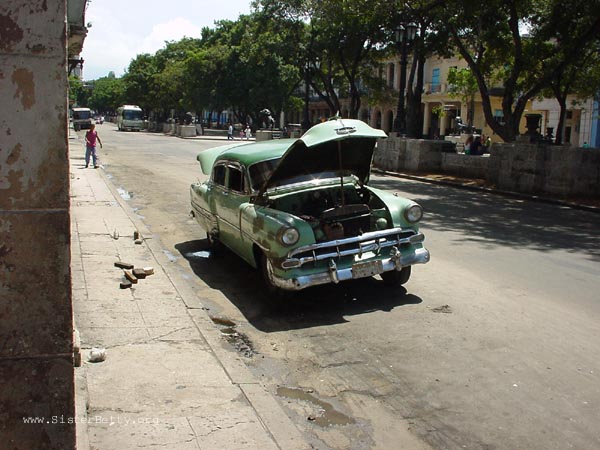| The Cuban presidential election of 1944 resulted in victory for Grau
San Martin, a coalition party candidate. Martin's administration was one
of recurring crises including widespread food shortages. Martin managed
to hold his popularity by obtaining an agreement with the U.S. government
for an increase in the price of sugar.
Fluctuations in world sugar prices and a continued inflation kept the
political situation unstable. Carlos Prio Socarrás, a member of
the Auténtico Part was elected president in June 1948. Shortly after
his inauguration a 10 percent reduction in retail prices was decreed, attempting
to offset the growing inflation. Living costs continued to rise, leading
to unrest and political violence.

Old American-built car in Havana.
|